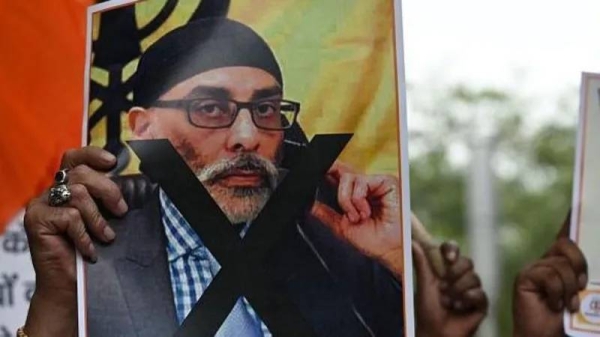
A diplomatic rift erupted between the Prague and Ankara on Tuesday after a Czech court ordered the release of Syrian Kurdish leader, in spite of a Turkish call for his extradition.
Saleh Muslim formerly headed the PYD, the major component of a coalition that governs Kurdish-held areas of northern Syria and deemed a terrorist organization by Turkey.
“The court ruled Mr. Muslim will be released,” said Marketa Puci, a spokeswoman for the Prague Municipal Court. She said the court ruling had taken effect as both the state attorney and the defense gave up their rights to appeal.
The decision means Turkey can file an extradition request within a 40-day period, but Muslim is free to leave the country.
He told the court he would remain on European Union territory and cooperate in further proceedings. Assessment of an extradition request can take months and if courts find it acceptable, the final decision rests with the Czech justice minister.
He was detained in Prague at the weekend at the request of Ankara, which accuses him of aggravated murder and disrupting the Turkish state.
Muslim said allegations against him were false and that he was surprised by his detention, given he had previously traveled to Belgium, Germany and France.
“Nobody was taking it (charges by Turkey) seriously, I didn’t know they would take it seriously here,” Muslim said. “First of all, I am a citizen of Syria, I am not a citizen of Turkey, second thing, I am a politician.”
Muslims lawyer Miroslav Krutina told reporters that his client vowed to participate in all extradition proceedings requested by Turkey.
Muslim said he had not yet decided where he would go next, but said he had permission to reside in EU-member Finland.
The decision to release him was hailed by several dozen Kurds who had come to show their solidarity in front of the municipal court building in central Prague.
Turkey described the court ruling as political and against international law. “It is a decision that is a very clear support for terror. The decision will negatively impact relations between Turkey and the Czech Republic,” Turkish government spokesman Bekir Bozdag said.
The Czech Foreign Ministry said any extradition request would be handled according to an international convention and law. “The Czech Republic strongly rejects any accusation of support of international terrorism,” it said in a statement.
Czech Prime Minister Andrej Babis declined to comment on the case Tuesday, insisting that "its a Czech court that decides."
Turkish Foreign Minister Mevlut Cavusoglu said Turkey would follow Muslim “wherever he goes”.
Turkey’s Ambassador to Prague, Ahmet Necati Bigali, said the decision was “not befitting our friendship with the Czech Republic. This decision has surely cast a shadow over our relations.”
Turkey launched a military offensive last month in Syria’s Afrin region against the Kurdish People’s Protection Units, the PYD’s armed affiliate, which it deems a menace along its border.
Ankara sees the PYD and YPG as extensions of the outlawed Kurdish PKK movement which has waged a decades-long insurgency on Turkish soil. The groups say they are independent.
Muslim is on a “wanted terrorists” list on the Turkish Interior Ministry’s website, accused of links to two bombings in Ankara that killed dozens of people.












